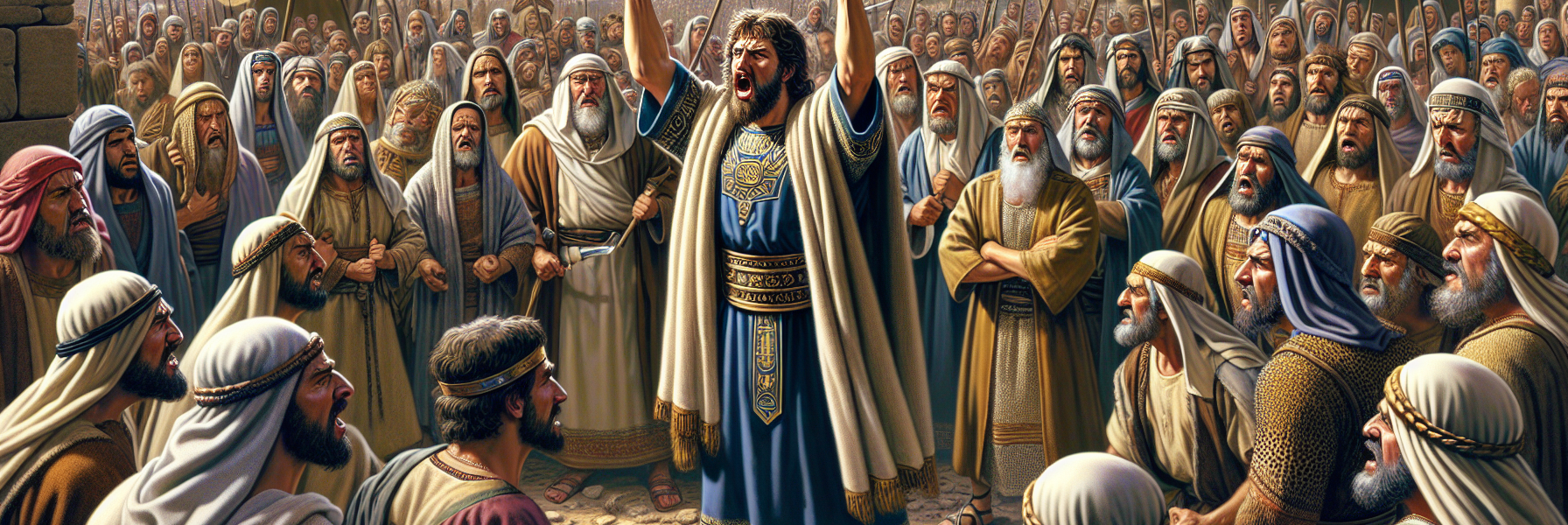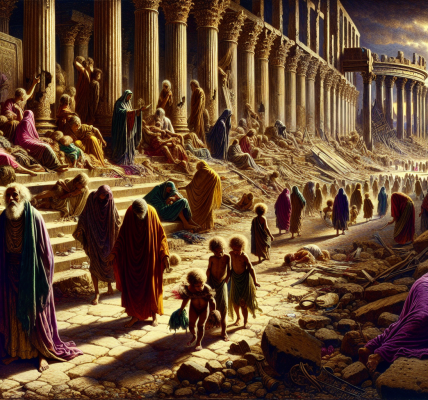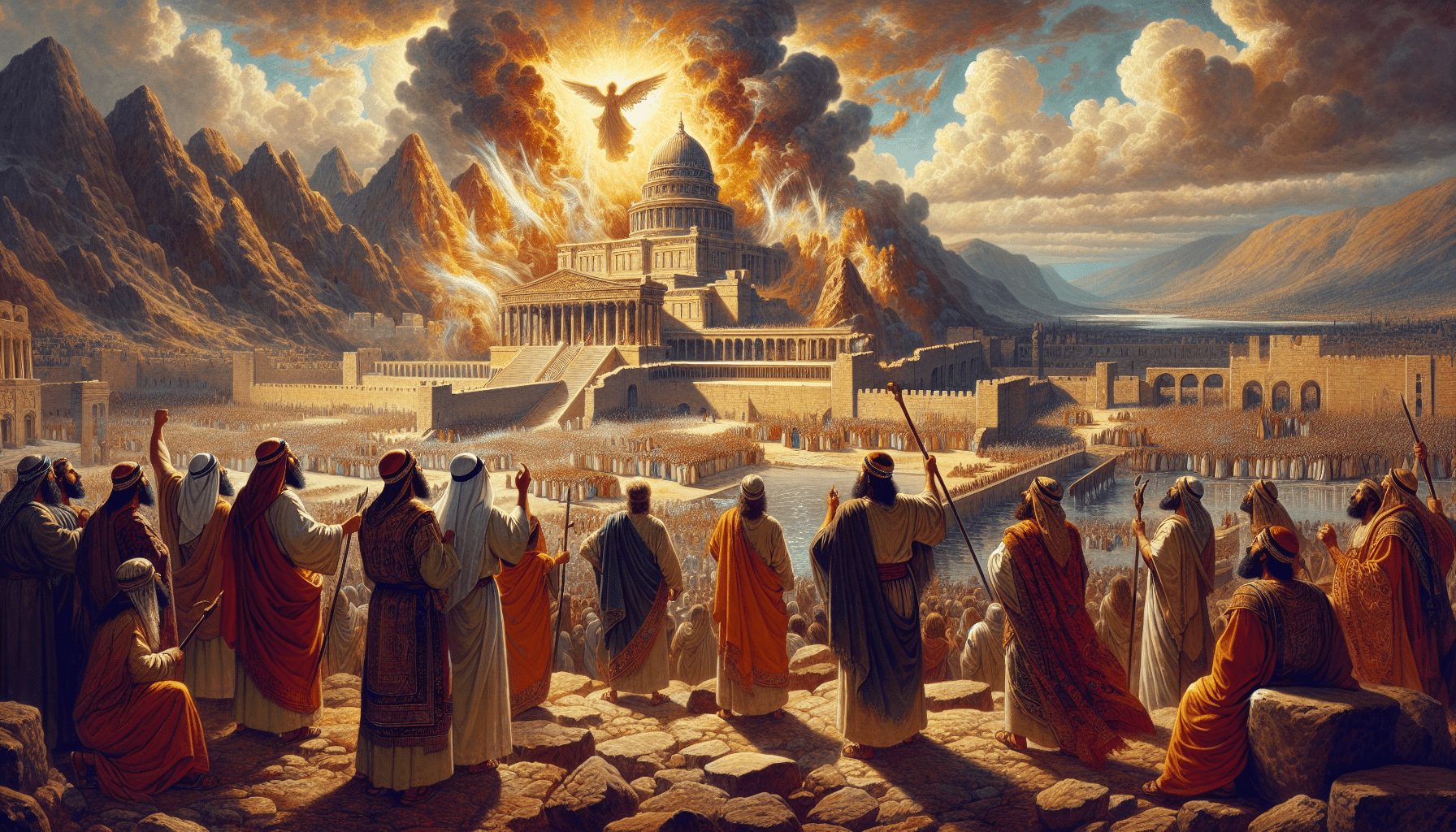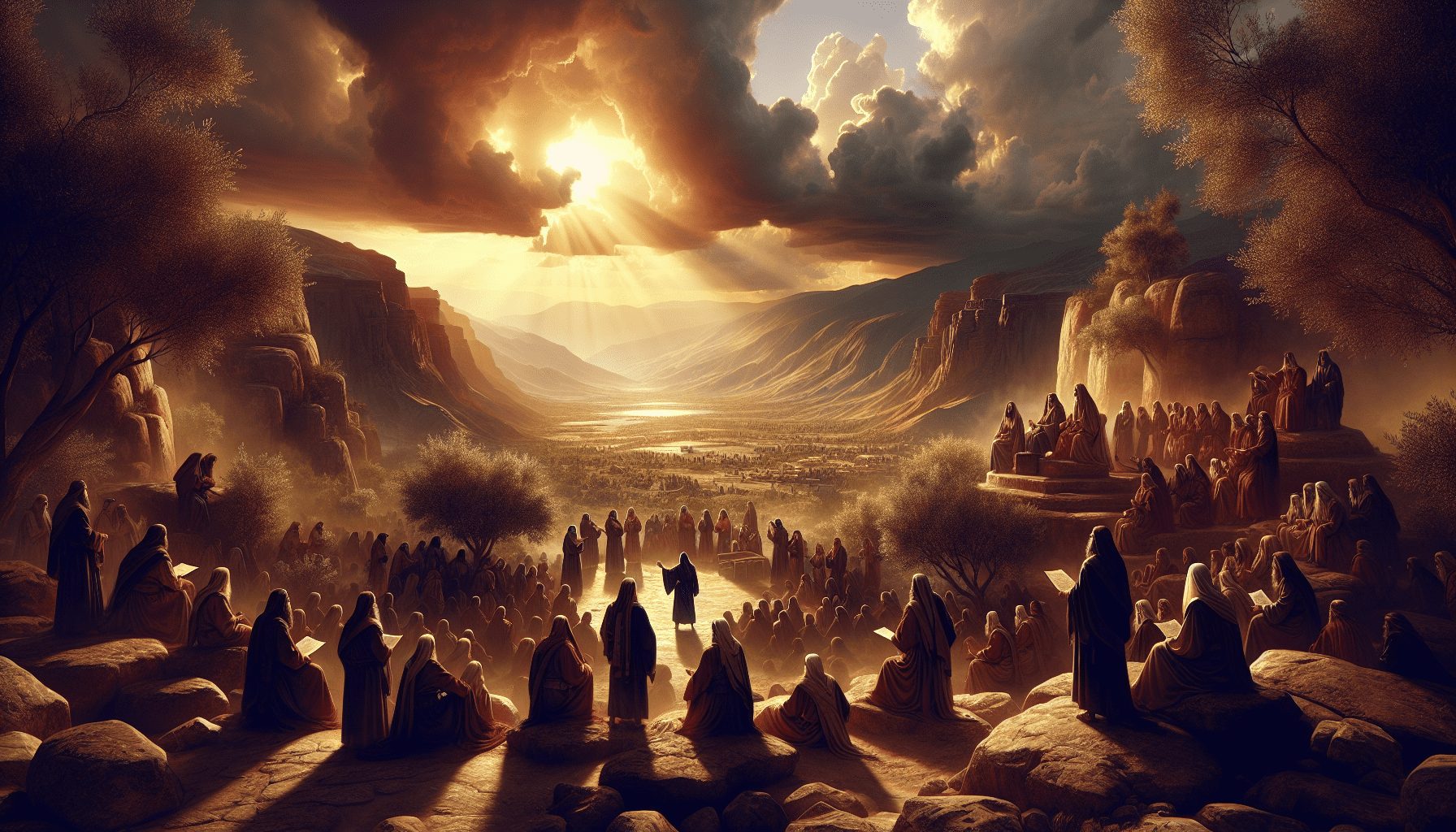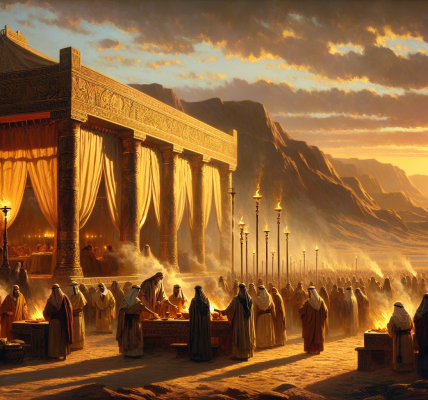**The Rebellion of Sheba**
The land of Israel, freshly scarred by the strife between Absalom and King David, had barely begun to heal when a new storm arose. The ten tribes of Israel, still nursing grievances from the past, found a new voice in Sheba, the son of Bichri—a Benjamite of proud lineage and a heart full of rebellion.
As the dust settled from David’s return to Jerusalem, the men of Israel gathered before the king, their voices raised in complaint. “We have ten shares in the king,” they argued, “so why should Judah claim him as theirs alone? Have we no part in David?” Their words, sharp as a dagger, cut deep into the fragile unity of the nation.
Sheba, standing among them, saw his moment. With a voice like thunder, he cried out, **”We have no inheritance in the son of Jesse! To your tents, O Israel! Look now to your own house, O David!”** And with that, the men of Israel abandoned the king, turning away from David as one man. Only the tribe of Judah remained steadfast, escorting their king from the Jordan to Jerusalem with unwavering loyalty.
### **David Acts Swiftly**
David, though wearied by years of war and betrayal, knew hesitation would be fatal. Entering his palace, he summoned his trusted commanders, his eyes burning with resolve. “Sheba son of Bichri will do us more harm than Absalom ever did,” he declared. “Take my men and pursue him before he finds refuge in fortified cities and slips from our grasp.”
Joab, the hardened commander of David’s army, wasted no time. He marshaled the mighty men—the Cherethites, the Pelethites, and all the seasoned warriors—and set out in furious pursuit. But before they could leave, David turned to Amasa, his newly appointed general. “Assemble the men of Judah within three days,” he ordered, “and present yourself here.”
Amasa, once Absalom’s general but now restored to favor, set out to gather the troops. Yet the days passed, and he did not return within the appointed time. David, sensing the urgency, could wait no longer. He turned to Abishai, Joab’s brother. **”Now Sheba will do us greater harm than Absalom. Take your lord’s servants and pursue him, lest he find fortified cities and escape from us.”**
### **The Treachery at Gibeon**
Abishai led the king’s forces northward, the warriors marching with grim determination. As they reached the great stone of Gibeon, a figure approached—Amasa, finally arriving with the troops of Judah.
Joab, clad in his battle armor, stepped forward to greet him. “Are you well, my brother?” he asked, his voice smooth as oil. Then, with a motion as swift as a viper’s strike, he seized Amasa’s beard with his right hand as if to kiss him—while his left hand drew the sword at his side. The blade plunged deep into Amasa’s belly, spilling his entrails upon the ground.
Amasa collapsed, writhing in the dust as blood pooled beneath him. Joab and Abishai strode past the dying man without a backward glance, their mission clear. One of Joab’s young armor-bearers stood over Amasa’s body and shouted, **”Whoever favors Joab and David, let him follow Joab!”**
But the soldiers hesitated, horrified at the sight of their commander lying slain in the road. The armor-bearer dragged Amasa’s body from the path and covered it with a cloak, and only then did the troops rally behind Joab, pressing onward in pursuit of Sheba.
### **The Siege of Abel Beth Maacah**
Sheba, cunning as a fox, had fled northward, gathering discontents along the way until he reached Abel Beth Maacah—a city of ancient walls and deep loyalty to its own. Joab’s forces arrived swiftly, surrounding the city and building a siege ramp against its walls. The great battering rams thundered against the gates, and the defenders trembled.
Then, from the ramparts, a wise woman called out, her voice cutting through the clamor of war. **”Listen! Listen! Tell Joab to come here so I may speak to him!”**
Joab approached, and the woman, her face lined with years of wisdom, pleaded with him. **”Long ago people used to say, ‘Get your answer at Abel,’ and so they settled the matter. I am one who is peaceable and faithful in Israel. You seek to destroy a city that is a mother in Israel. Why would you swallow up the Lord’s inheritance?”**
Joab, though ruthless in war, was no fool. **”Far be it from me to swallow up or destroy!”** he answered. **”But a man named Sheba son of Bichri has lifted his hand against the king, against David. Hand over this one man, and I will withdraw from the city.”**
The woman, assured of his word, returned to her people. With swift persuasion, they cut off Sheba’s head and threw it over the wall to Joab. The rebellion was over.
Joab sounded the trumpet, and the army withdrew, returning to Jerusalem. The land, though wounded, would know peace once more—for now.
### **The King’s Court Restored**
David, upon hearing of Sheba’s end, breathed a sigh of relief. Yet the scars of betrayal ran deep. Joab, ever the ruthless instrument of the king’s justice, remained commander of the army—his loyalty unshaken, his methods unforgiving.
And so the kingdom endured, held together by the fragile threads of loyalty, justice, and the unyielding will of a king chosen by God. The rebellion of Sheba was crushed, but the hearts of men remained restless, ever in need of a greater King—one whose reign would never end.
